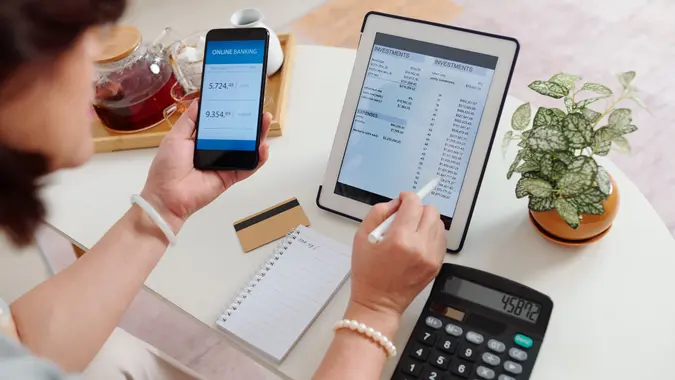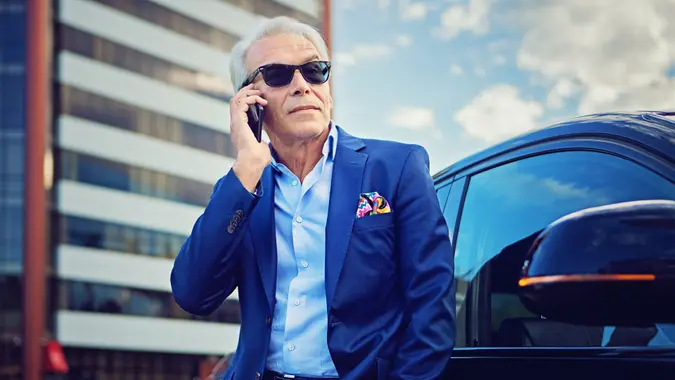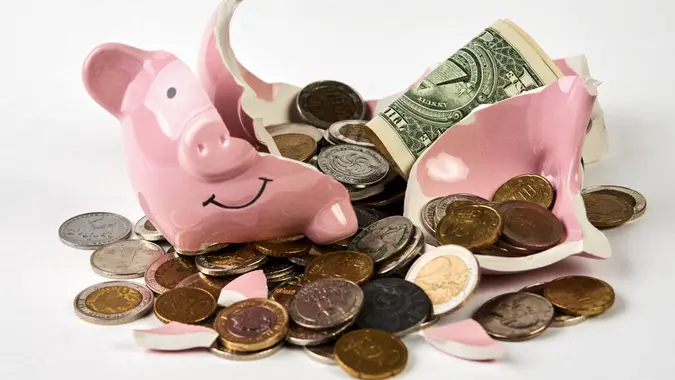Dave Ramsey: It Doesn’t Matter What Type of Account You Use for Your Emergency Fund

Commitment to Our Readers
GOBankingRates' editorial team is committed to bringing you unbiased reviews and information. We use data-driven methodologies to evaluate financial products and services - our reviews and ratings are not influenced by advertisers. You can read more about our editorial guidelines and our products and services review methodology.

20 Years
Helping You Live Richer

Reviewed
by Experts

Trusted by
Millions of Readers
Money expert Dave Ramsey has helped millions of Americans get out of debt and build wealth with his seven-step plan known as the “7 Baby Steps.” Step No. 1 is to build a $1,000 emergency fund — and he doesn’t care where you keep it.
Here’s why Ramsey said it doesn’t matter the type of bank account you use for your starter emergency fund.
Why Account Type Doesn’t Matter
When you’re in the phase of building your $1,000 emergency fund, you can keep that cash in whatever type of bank account makes most sense for you.
“It really doesn’t matter what kind of account you put it in — it’s not going to make any money,” Ramsey said in a YouTube video.
With lower balances, the interest rate offered by the account won’t make a significant difference.
“There’s no such thing as a 10% [interest rate] account on $1,000,” Ramsey said. “You can put it in a money market if you want, and you’re going to make 1% — we’re talking about $10 a year.”
Because there’s not much to gain by chasing a high interest rate, Ramsey said not to worry about the type of account you choose at all.
“I don’t care if you even put it in an account,” he said. “I don’t care if you keep it in the sock drawer.”
Where Not To Keep It
The caveat to Ramsey’s advice is that you should keep your money in a place that won’t make it easy to spend for non-emergencies.
“The downside of keeping it in the sock drawer is you might think the pizza man at the front door is an emergency, and he’s not,” Ramsey said. “So you need to be careful about how you define emergency. This is just to be used for emergencies.”
Emergency Fund as Insurance
When you get further along in your wealth-building journey, you’ll want to start using money to make more money. But when you’re saving your first $1,000, this shouldn’t be your concern.
“The emergency fund is not about making money — it’s insurance to keep you from cashing out stuff you shouldn’t have to cash out or going into debt,” Ramsey said. “Insurance doesn’t make you money. Insurance costs you money to protect things that make you money, and that’s the best way to look at your emergency fund.”
The key is accessibility without temptation — not interest.
More From GOBankingRates
 Written by
Written by  Edited by
Edited by 

























